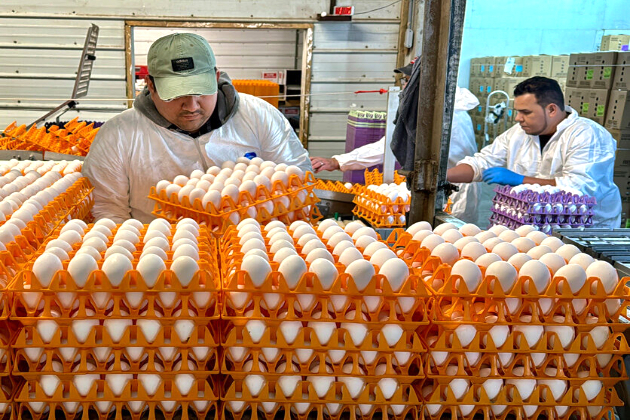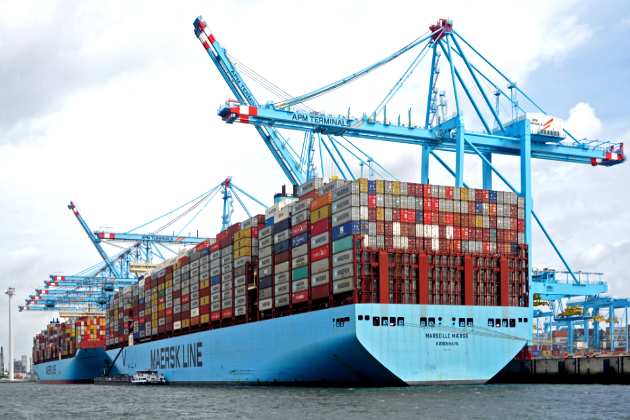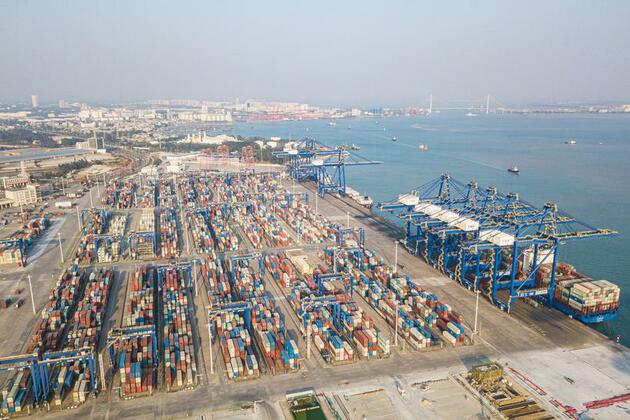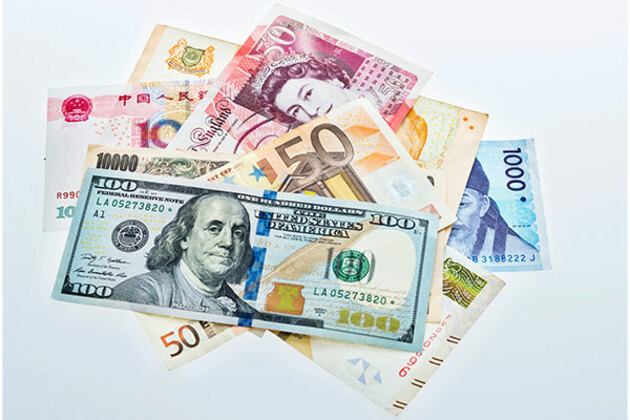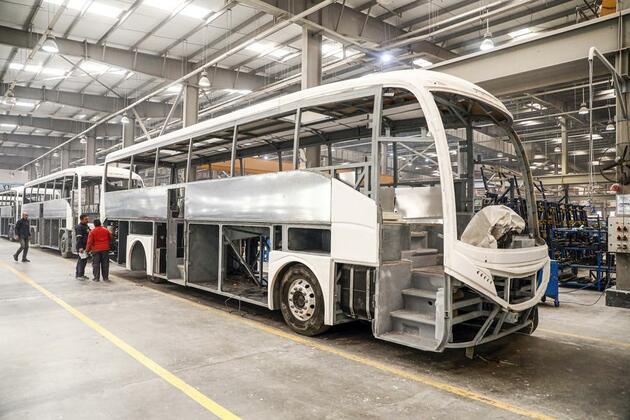Social protection responses to the COVID-19 lockdown in South Africa
The Conversation
06 Apr 2020, 20:13 GMT+10
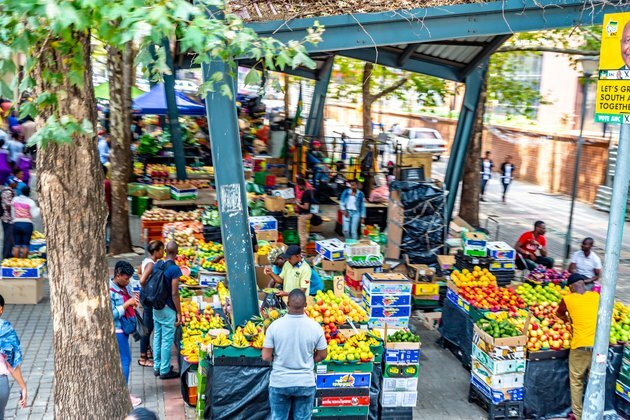
Poor and vulnerable South Africans, including domestic, farm, service sector, and self-employed workers as well as children from poor families, face a double shock. COVID-19 is a major health risk that has already claimed tens of thousands of lives worldwide and is starting to claim lives in South Africa. Social distancing and self-isolation are necessary to slow the spread of the virus, and the 21-day lockdown is designed to "flatten the curve".
But the lockdown itself has consequences that will be devastating for the poor. Many small businesses will close and thousands of working people will lose their jobs. Many are already sitting at home on "annual leave" or unpaid leave during the lockdown, which is likely to be extended beyond 21 days. The lockdown in the UK could last for up to six months.
What social protection measures have been put in place for those who will be worst affected by the economic impacts of the lockdown?
On 23 April South African President Cyril Ramaphosa announced a set of safety net interventions to "cushion our society" against the economic and human consequences of the lockdown. These include a Solidarity Fund financed mainly by voluntary donations, a Temporary Employee Relief Scheme for employees of companies in distress, and a tax subsidy for low-income private sector workers. The Motsepe, Oppenheimer and Rupert families have each donated R1 billion to assist in dealing with the crisis.
Nonetheless, several groups remain at high risk of hardship, especially those who have effectively become unemployed because of the lockdown. It is far from clear that they will be reached by the COVID-19 safety net.
Informal workers and low-paid workers
The interventions by the president could assist large numbers of affected firms, small businesses and their employees. But the most vulnerable working-age adults are not formally employed. Workers at greatest risk of hardship during the lockdown are those who are now sitting at home on "no work no pay." They include:
Domestic workers: about one million, mostly women, whose employers should have paid them in advance for the days they will not be working in the coming weeks. But many employers will not have done the right thing.
Farm workers: estimated at 650,000, the majority of whom are women. With the agricultural season now ending, farm workers are unable to claim Unemployment Insurance Fund benefits that are vital to help them survive the winter months, because labour centres are closed.
Service sector workers: such as waitrons who get paid by the shift and supplement their income with tips, cleaners and Uber drivers.
Self-employed workers: car guards, hawkers and beggars whose livelihood depends on daily interactions with the public. About three million people (20% of total employment) work in these and other informal sector activities.
Will the Temporary Employee Relief Scheme be accessible to these informal sector and self-employed workers? How can individuals apply to this scheme, or to the Solidarity Fund? How much money will be paid out to successful applicants? How long will it take for applications to be processed and payments to be released?
Children
The President didn't mention children once in his speech when he announced the lockdown. 12 million children receive the Child Support Grant every month. We know that this grant isn't sufficient to meet a child's nutritional needs. One in four children in South Africa are already malnourished. COVID-19 threatens to make it even worse for the 12.5 million children who receive the child social grant because their parents are earning less income during the lockdown, and children aren't getting school meals.
More than 9 million schoolchildren from poor families receive meals every school day, and most of them receive the Child Social Grant. With all schools in South Africa now closed, that vital source of food has stopped.
In the Western Cape, the Peninsula School Feeding Association raised additional funds so that food handlers can prepare a free nutritious daily lunch for 4,200 children at community kitchens around Cape Town. Other NGOs are delivering food parcels in impoverished communities throughout the country.
This is commendable, but it will reach only a tiny fraction of needy children and families. With reduced incomes and no meals at school to supplement meals at home, children's food security and nutrition will certainly suffer.
The government must find ways to protect the basic needs of the country's estimated six million low-income families who are now facing the impossible situation of "no work no pay".
What needs to be done
All employers must be obliged to continue employing workers on full pay during the lockdown, and must not be allowed to either fire workers or leave them sitting at home on "unpaid leave". Employers that genuinely struggle to cover wage costs can apply for support from the Industrial Development Corporation (which has R3bn for vulnerable firms) and the Temporary Employee Relief Scheme.
Employers that can afford to pay their workers but choose not to do so should be reported for non-compliance, prosecuted, fined and ordered to pay compensation. When announcing the lockdown President Ramaphosa said:
We recommend that this "responsibility" be enforced.
Unemployed and informally employed workers depend on the Child Support Grant, Older Persons Grant and other social grants, which inevitably are spread among entire families, not only the intended beneficiary. With income in many households falling to zero during the lockdown, the grants will be diluted even further and will be inadequate to protect families against hunger.
The need for cash is compounded by the reality that food prices rose rapidly, due to panic buying and profiteering by unscrupulous shopkeepers and supermarkets. The Department of Social Development should therefore authorise a double payment of social grants in April, to boost the purchasing power of families who will have no other source of cash to meet their basic needs in the coming weeks.
One advantage of this measure is that it can be implemented by government decree immediately with no delays, no paperwork and no complex application processes.
The National School Nutrition Programme should continue to provide nutritious meals daily to poor children and their families throughout the country for as long as schools remain closed, either for collection from schools or served from mobile kitchens located temporarily in impoverished communities - while ensuring that social distancing is observed.
Lockdown Hardship Fund
The Solidarity Fund is not enough. It is financed mainly by voluntary donations, with just R150m from the government. The Motsepe, Oppenheimer and Rupert families, as well as companies including Naspers, have pledged large sums - totalling at least R5.5 billion - but most of this is earmarked for purchasing personal protective equipment, sanitisers and medical supplies, or to support affected businesses with soft loans.
An emergency lockdown hardship fund that will deliver a guaranteed safety net for those whose livelihoods have been cut off by the lockdown is needed. This should be an urgent priority. The fund should be established - or perhaps the Solidarity Fund could be refocused - and mechanisms must be found and widely communicated for needy people to apply for and receive hardship payments quickly - during, not after, the lockdown period.
These proposals will be expensive. But what is the cost of not putting an effective safety net in place? Poverty, food insecurity and malnutrition will rise. Millions of South Africans will emerge from the lockdown worse off than before. The government, employers and civil society must ensure that nobody in South Africa goes hungry because of the lockdown.
Author: Stephen Devereux - Research Fellow, Institute of Development Studies, University of Sussex 
 Share
Share
 Tweet
Tweet
 Share
Share
 Flip
Flip
 Email
Email
Watch latest videos
Subscribe and Follow
Get a daily dose of Greek Herald news through our daily email, its complimentary and keeps you fully up to date with world and business news as well.
News RELEASES
Publish news of your business, community or sports group, personnel appointments, major event and more by submitting a news release to Greek Herald.
More InformationInternational Business
SectionUS boosts egg imports from Brazil amid bird flu spread
WASHINGTON, D.C.: In response to soaring egg prices and supply shortages driven by a devastating bird flu outbreak, the United States...
Ireland’s Central Bank warns of economic risk from US-EU trade dispute
DUBLIN, Ireland: As tensions rise between the United States and the European Union over potential tariffs, Ireland's Central Bank governor...
Xinhua Commentary: China sticks to opening up despite growing global protectionism
An aerial drone photo shows a view of Yangpu International Container Port in the Yangpu Economic Development Zone in Danzhou, south...
India's forex reserves rise to USD 658.8 billion, extending gains for the third week
New Delhi [India], March 29 (ANI): India's foreign exchange reserves rose USD 4.529 billion to USD 658.800 billion in the week that...
Tariff uncertainties to keep gold prices in India between Rs 87-90K range in H1-2025: Report
New Delhi [India], March 29 (ANI): US tariff uncertainties are likely to push gold prices to Rs 87,000- Rs 90,000 in the first half...
Bagggel Announces 2nd Edition of "Being CEO Ready" Conference to Address Leadership Gender Gap
HT Syndication Bengaluru (Karnataka) [India], March 29: Bagggel Foundation is proud to announce the second edition of its annual...
Mediterranean
SectionChina's EV advances drive new opportunities for Egypt's auto sector, industry leader says
Workers are seen at a factory of Egypt's Geyushi Automotive Industry in Sharqia Province, Egypt, on March 10, 2025. (Xinhua/Ahmed Gomaa)...
Priyanka Chopra starrer 'Citadel Season 2' postponed to 2026: Report
Washington DC [US], March 29 (ANI): Priyanka Chopra-starrer 'Citadel Season 2', which was set to release in 2025, has been delayed...
Power couple: How India and Russia reignited their atomic bond
As New Delhi accelerates its nuclear program, a legacy of cooperation with Moscow should remain key to its strategy In an era of...
EU preparing for war member state
Brussels would do anything to avoid accountability for the billions of euros sent to Kiev, the Hungarian FM has said Hungarian Foreign...
(SP)SLOVENIA-PLANICA-VIESSMANN FIS SKI JUMPING WORLD CUP-FLYING HILL INDIVIDUAL HS240
(250329) -- PLANICA, March 29, 2025 (Xinhua) -- First-placed Domen Prevc (C) of Slovenia, second-placed Anze Lanisek (L) of Slovenia...
IDF strikes Hezbollah storage facility in Beirut
Tel Aviv [Israel], March 29 (ANI/TPS): The Israel Defense Forces (IDF) struck an unmanned storage facility used by the Hezbollah terrorist...

